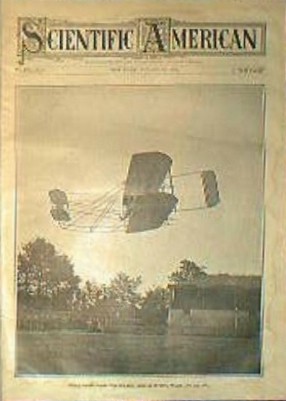This thirst resulted in the creation of the American Philosophical Society. Founded by Benjamin Franklin, the goal of the society was simply to further develop America’s scientific knowledge and share that knowledge with the public. This was the beginning of America diverging from Europe in a scientific sense. While science in Europe was mostly speculative, America’s scientists were determined to find definitive answers through, admittedly crude, scientific method. In addition to this evolution in science, the society’s choice to share the knowledge they discovered with the public was a tremendous step forward. This created a public interested and educated in scientific advancement and excited by how new technology could improve their lives. (American Philosophical Society)
As the public become more aware of science, scientific development began to shift into the hands of the masses. Indeed, the middle class began to use their crude understanding of the world to create inventions designed to improve living and working conditions. Practical, applied science became the focus, and as new inventions were being created, the positive implications of scientific progress became increasingly apparent to the public. Science became more of a tool for success than a useless topic of discussion for the wealthy. However, just as this movement of public, practical science was fueling its existence by creating a public interest in science, it was simultaneously causing its own demise. (Science in America)
 Science was becoming more complex and began to require more formal training. As a result, organizations began to form only accepting those with advance scientific education. During this period, science became more organized and standards began to be established. While science was becoming more professionalized out of necessity, Americans were still kept informed. Organizations, such as the Smithsonian and publications such as Scientific American, kept the public up to date on scientific knowledge and achievement. This was both a product and a contributing factor to the American public’s concern with modern science. (Science in America)
Science was becoming more complex and began to require more formal training. As a result, organizations began to form only accepting those with advance scientific education. During this period, science became more organized and standards began to be established. While science was becoming more professionalized out of necessity, Americans were still kept informed. Organizations, such as the Smithsonian and publications such as Scientific American, kept the public up to date on scientific knowledge and achievement. This was both a product and a contributing factor to the American public’s concern with modern science. (Science in America)Jumping forward to the 20th century, science was now more theoretical and could no longer be utilized without a formal education. While scientific advances were still strongly related to public affairs — many scientific breakthroughs went into the vast urbanization of the 20th century — the government was now viewing science as a matter of national security. After Albert Einstein and other scientist lobbied the federal government to support the creation of a nuclear weapon in retaliation to German research, the Office of Scientific Research and Development was formed. Thus ,the importance of science grew beyond a social, practical, and even economic importance, it became deeply rooted in American government. (Manhattan Project)
Science continued to play a central role in American government, even becoming a symbol of national pride. Beginning 1957 when the Soviet Union launched the first satellite into space, Sputnik, the United States and the Soviet Union entered a competition in which the goal was space exploration, and the ultimate challenge was getting a man on the moon. At the time, the major purpose of the expedition was to achieve an impossible task in very little to demonstrate America’s strength as a nation. As John F. Kennedy said in his speech to Rice University, “We choose to go to the moon... because that goal will serve to organize and measure the best of our energies and skills.” Science, at this point, had become the measure of the success of a nation. It required educated citizens, money, and organization, and, as a result, was the perfect method for demonstrating international success without conquest.
About twenty years after the end of the Space Race, the united states entered another seemingly impossible task. The Human Genome Project began under the direction of the United State, but soon became an international effort. By leading the global effort to crack the human genome, America remained on the cutting edge of scientific discovery and technological achievement. (Human Genome Project)
Throughout its history, America has remained at the forefront of science and has even lead the movements that have changed the way science operates. By constantly being at the head of this race towards knowledge and its practical applications, America has risen from a powerless group of states to an international powerhouse. An unparalleled adherence to science has made America what it is today.
3 comments:
Great! I see a lot of potential in how each of your analytic posts are ultimately going to fit together. For the background piece, perhaps a bit more about the "end of the space race" might be helpful as this is the focus of your other two analytic pieces. For example, did either of the shuttle disasters (1986 or 2003)have an impact on today's thinking? The relevance of the Genome Project is perhaps a little bit less clear overall.
I think one of your most interesting points was the idea that science went from a conversational topic to a more professional way to create advancement. I think that it could potentially be interesting to talk in more specifics about what caused these advancements to occur? What were examples of ideas that scientists wanted evidence to help support?
Post a Comment